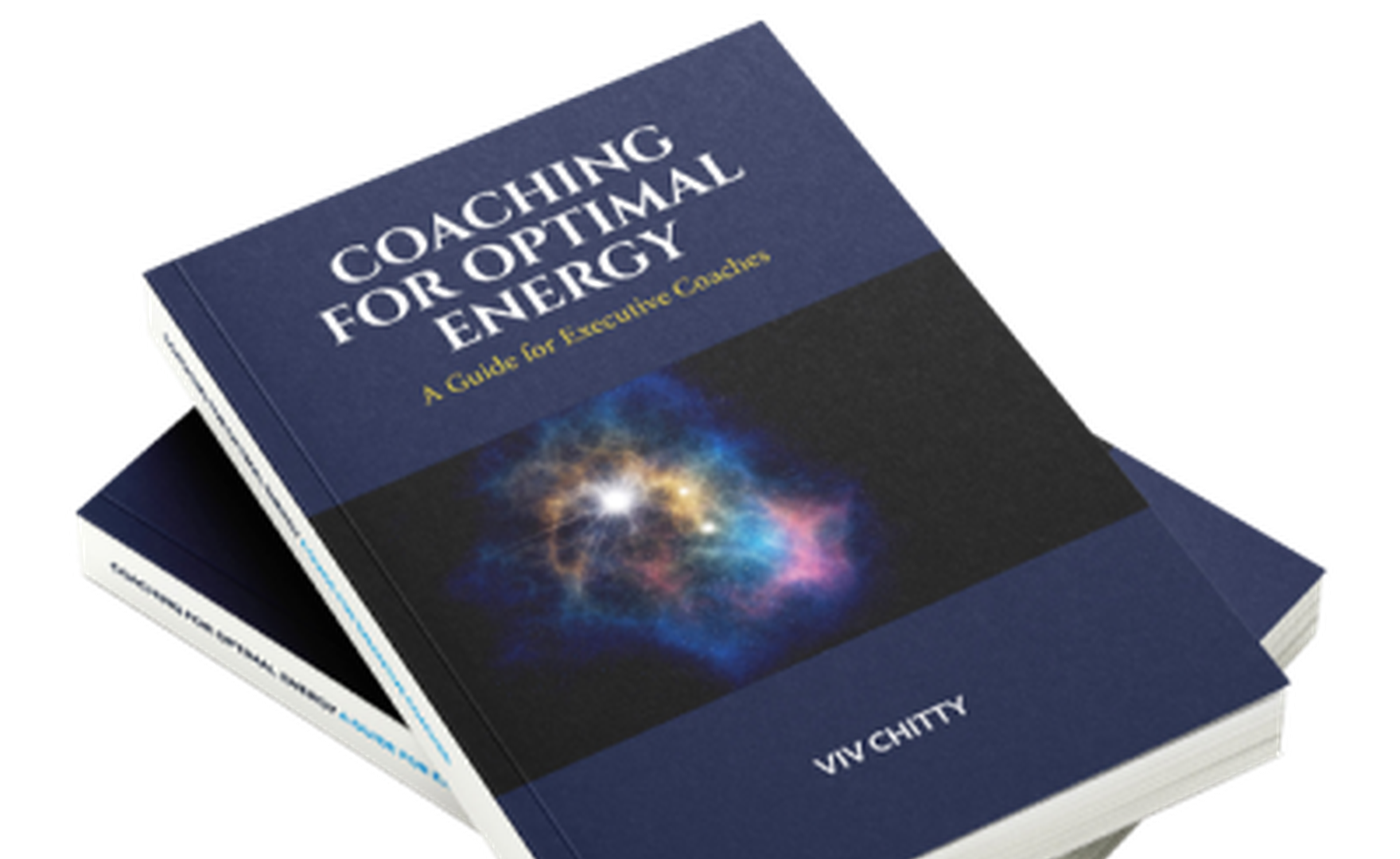Book review – Coaching for Optimal Energy by Viv Chitty
2nd August by Lee Robertson
Reading time 3 minutes

This book caught my eye because it is subject matter that probably does not get the full thought and attention it deserves.
For its author Viv Chitty, Coaching for Optimal Energy represents a personal journey of discovery.
She had been coaching senior executives since 1998 and had become increasingly aware of differing energy levels in her clients and how it was manifesting as an issue for some. That piqued her curiosity to find out more, but there was little existing research which was useful. That left her wanting to know more and questioning if other coaches were addressing energy levels in clients and if so, how?
Her interest eventually led her to studying the subject for her Masters in Coaching and Mentoring Practice at Oxford Brookes University. That body of work was awarded the APECs prize for the best dissertation on an executive coaching or supervision topic before eventually evolving into this, her latest book – Coaching for Optimal Energy.
Readers will find a well-considered and constructed book that leaves no stone unturned when it comes to exploring how energy impacts how we behave as humans.
It has been expertly put together by combining peer-reviewed evidence from published research and the lived experiences of herself and other professional coaches. The result is a profound insight into the concept of human energy in the context of the workplace. As Chitty explains, it also aims to help the reader become more able to recognise manifestations of energy in clients, the impact on their performance and provides practical insight into how this could be addressed with clients once it has been assessed whether it is appropriate to do so.
The content is easy to follow and starts with a comprehensive overview of the concept of energy and how it manifests in executive coaching. Chitty guides the reader through the different states of energy – optimal, depleted and inappropriate high energy – and challenges previous thinking moving away from the linear model of low/bad versus high/good energy.
Chapter two walks the reader through the myriad of influences on energy taking everything from physical and psychological influences into account, through to what might be happening to and around people in the workplace and out of work too. Chapter three attends to why we should be addressing energy and the role of the executive coach in doing so.
The fourth outlines the steps coaches can take to assess whether to address energy with the client and how to start doing so in a coaching session. Chapter five tackles the physical influences on energy such as diet and exercise, while the sixth deals with the psychological side and examines emotions, trauma and social interactions. The last chapter further concentrates on the psychological aspect by delving into working with the cognitive influences on energy.
I read it thinking that it offers a rich and valuable resource for coaches whether you are new to the profession or have many years of experience under your belt. It is an important topic that Chitty successfully covers with clarity and authority.
The academic research is complemented with a healthy peppering of quotes from fellow executive coaches which help illustrate and bring their approaches to energy management to life. This is a useful and practical resource and required reading for coaches of all levels and anyone working in the field of people management. It will also particularly resonate with those working with stress, resilience or high performance because so much of what it covers is pertinent to how and why we behave and feel the way we do.
Coaching for Optimal Energy is published by VCA Publishing and is available from Amazon and all other good bookshops.